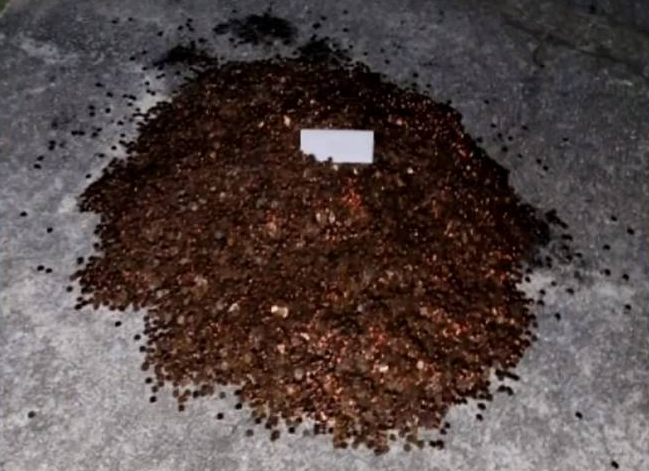The Problem With 500 Pounds of Pennies
When you think of people stealing from other people, you probably picture crimes like shoplifting, burglary, or maybe even embezzling. But there’s another form of theft that typically flies under the radar: wage theft. Wage theft occurs when a business fails to pay workers the money they are owed, and comes in a few different forms. Maybe the employer isn’t paying minimum wage or correctly paying out overtime. Sometimes, it happens when a business fails to cut a check to a freelancer or contractor for work performed. And when workers leave their jobs, sometimes their now-former employer fails to send them that final paycheck. Whatever form it comes in, wage theft is a lot more extensive than you’d probably think. As the Guardian reported, “Workers in the US have an estimated $50 billion-plus stolen from them every year, according to the Economic Policy Institute, surpassing all robberies, burglaries and motor vehicle thefts combined. The majority of these stolen wages are never recovered by workers.”
When Andreas Flaten left his job in 2020, it looked like he’d be one of the many victims of wage theft. But instead, he got the last laugh.
Flaten was working at an auto repair shop in Georgia, not too far from Atlanta. But, per the New York Times, his work schedule wasn’t what he expected, and his relationship with his employer slowly disintegrated. And, apparently, he didn’t leave on the best of terms, because his employer never sent him his final paycheck. Flaten ultimately asked the U.S. Department of Labor to intervene, and after they did, the autobody shop owner agreed to pay Flaten the $915 he claimed he was owed.
On the evening of March 12, 2021, that final payment arrived. Here’s what it looked like.

That’s a pile of pennies — 91,500 of them, give or take. And if you don’t immediately see the math, in total, they’re worth $915. Flaten’s former employer paid him in pennies.
Well, not just pennies. They were also covered in some sort of stinky, greasy goop, probably motor oil. And that little piece of paper sticking out the top? As the Times reported, “placed amid the foul-smelling coins was an envelope etched with an expression of unmistakable disapproval. Inside he found his pay stub, but no check.”
The payday required a lot more work to be useful. With his girlfriend’s help, Flaten loaded the pennies, weighing roughly 500 pounds, into a wheelbarrow (which he later claimed broke under the weight of the coins). And to clean the coins? That was an endeavor in its own right. After trying some bulk solutions and failing, Flaten claimed that he had to clean each penny individually — at the rate of about $2.50 “earned” per hour.
So, he went back to the Department of Labor for help, again. At first, this seemed unlikely to succeed — nearly 100,000 pennies, while a pain in the you-know-what to use, are still legal tender in the United States, and typically a valid way to pay one’s debts. Flaten argued, though, that the manner of the payment was tantamount to retaliation, which is also illegal. (The employer, allegedly, also posted some not nice things about Flaten on social media, furthering Flaten’s case.) And the Department of Labor ended up filing a lawsuit against the employer — but not only because of the penny dump. As the AP reported, “the Labor Department said further investigation found that [the] business had also violated overtime provisions of the federal Fair Standards and Labor Act.”
Those violations added up to a lot more than $915. In total, they came out to nearly four million pennies — $39,934. Of that total, roughly $8,700 went to Flaten, and the rest went to eight others who had similarly been underpaid for their overtime.
The employer paid up, no problems this time — and this time, no pennies were involved.
Bonus fact: Spending all those pennies would have been tough — yes, they’re worth $915, but again, they weigh 500 pounds. Dimes, despite being smaller and being worth ten times as much, have a similar problem. But that didn’t stop a team of ten or so thieves from stealing more than two million of them. In April of this year, a truck driver picked up $750,000 worth of dimes from the U.S. Mint in Philadelphia on his way to Miami, when he stopped in a Walmart parking lot to take a nap. A band of thieves broke into the truck and took about a third of the coins, weighing about six tons, according to WHYY. It’s unlikely that the robbers knew what they were about to steal when they broke into the truck; per WHYY, the theft “was part of a spree of robberies from tractor-trailers passing through the region that also netted the thieves frozen crab legs, shrimp, meat, beer, and liquor.” (Or, in other words, they stole whatever they came across.) The band of dime stealers was ultimately apprehended, although most of the coins went unrecovered.
From the Archives: Pennies From Everywhere: Paying for college, one cent at a time.
